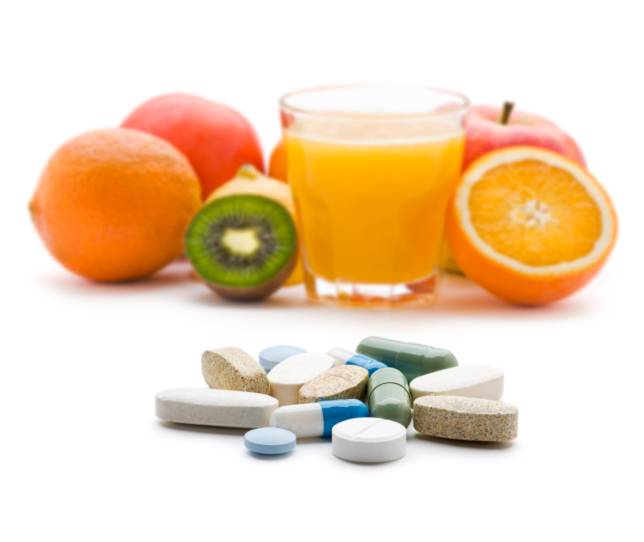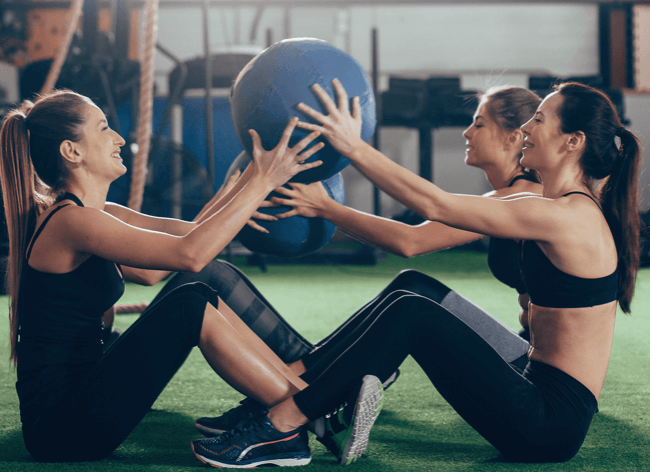 By Dr. Yael “Dr. V” Varnado
By Dr. Yael “Dr. V” Varnado
We see articles and advertisements for vitamin supplements all the time but what should you really be taking as a woman? In general, we all know that we should be popping a multivitamin every day, but what other vitamins and supplements should you be taking in your 20’s 30’s 40’s and 50’s as a woman? Could too much of a good thing be dangerous?
- It’s important for every woman to be taking a daily multivitamin. My personal favorite and the one I recommend in this department is the collection from New Chapter.
- Fish Oil is also great for women at every age to include in their diets as it supplies you with the Omega-3 you need. This is a must because it helps your brain properly operation; is important for cognitive (brain memory and performance) and behavioral function, helps reduce high blood pressure; and calms inflammation.
- Vitamin D – Vitamin D is a must for women, primarily because it helps us absorb calcium and you’ll want about 600 IU (International Units) of it a day as a woman, up until the age of 70 when this amount will increase. If you’re not getting that through your regular diet you’ll want to add a Vitamin D supplement to your regiment.
- Folic Acid – if you’re of “child-bearing age” and are considering having children, you want to begin taking Folic Acid prior to getting pregnant as well as during pregnancy, otherwise your baby could be at risk for neural tube defects such as Spina Bifida.
- Iron: Iron is an important item to consider, especially for menstruating women. It’s important to your body because it lets your red blood cells carry oxygen and deliver it to your body’s cells and tissues. Without enough of it in your diet you can develop fatigue and even anemia. Most women get Iron from their diet but if you’re feeling any iron deficiency symptoms such as tiredness or weakness, have very heavy periods or don’t think you’re eating a well-balanced diet that is delivering enough Iron, you may want to check with your doctor and talk to her or him specifically about supplements to be sure you get your daily dose!
- Calcium: Calcium, as we all know, can help us maintain bone mass, which is essential to a healthy body. If you aren’t receiving enough in a day naturally, you may want to supplement your diet with a calcium chew or pill. That said, there can be dangers involved in taking too much calcium, so be sure you check with your doctor regarding how much you should be taking.
Your 40’s

Again you want to be sure you’re taking your multivitamin, and then we see some familiar “faces” in the vitamin/supplement world but they are needed for different reasons because your body is changing:
- Calcium-Magnesium – Once you’re in your 40’s you really want to focus on preventing osteoporosis, which means you want to be getting plenty of calcium. Your body needs 1,000 mg a day and that glass of milk you may be consuming over breakfast only covers 300 mg. Women over forty may also want to consider a calcium-magnesium supplement, as they need even more! Again, though it’s important, do not over do your calcium supplements as this can actually work against good health!
- Folic Acid: Because more and more women are having babies in their early 40’s it’s important to remember that you need to up your daily folic acid intake if you are considering a baby in your 40’s and continue taking it throughout the pregnancy!
- Again – Vitamin D and Iron are keys to healthy living for women in their 40’s just as they were in their 20’s and 30’s.
50’s and beyond
 • Time for a New Multivitamin: It’s time to switch to multivitamins designed for adults 50 years and older at this time because you’re protecting your body in different ways! You aren’t as concerned with your iron intake as you were when you were younger but you’re going to want to have a multivitamin that is more concerned with things like eye health, heart disease and your gastrointestinal tract!
• Time for a New Multivitamin: It’s time to switch to multivitamins designed for adults 50 years and older at this time because you’re protecting your body in different ways! You aren’t as concerned with your iron intake as you were when you were younger but you’re going to want to have a multivitamin that is more concerned with things like eye health, heart disease and your gastrointestinal tract!
• Vitamin B12: Your vitamin B12 needs increases after 50 because the gastrointestinal tract does not absorb vitamin B12 as well as a younger digestive tract. You’ll be getting this vitamin mainly by consuming foods fortified with vitamin B12 or a supplement containing vitamin B12.
• Calcium-Magnesium: For women over 50 years, osteoporosis is definitely a concern which is why you want a supplement that is ensuring you’re getting enough calcium and that it’s being absorbed into your body!
• Vitamin D: There is an increasing amount of research on the benefits of vitamin D, particularly for bone health and it can be challenging to consume the recommended daily amount of vitamin D through diet alone. Studies also show that women over 50 have a reduced capacity to produce vitamin D through sun skin exposure.
Other things women should know about their vitamins, minerals and diets:
- Did you know you there IS such a thing as “too much of a good thing” – Studies show that too much calcium has been linked to health issues such as heart disease. This means you do not want to take more than 667 mg of it in supplement form.
- Vegetarians: I often get asked if they need to add more supplements and vitamins to their diets but really, if you’re “going green” yet still eating a full and balanced diet you’ll be getting the nutrients you need from places other than meat. You don’t necessarily have to add any supplements to their diet. When you’re embarking on a vegetarian lifestyle (or already live one) it’s good just to touch base with your doctor about this when you are visiting her or him, to be sure it’s not having any impact on your body and health!
Remember Lucille Roberts gals, beyond the supplement helping you be your healthiest and best self, what you eat has a huge impact on your body, so be sure you’re eating a full and healthy diet that’s filling you with the majority of the must-have vitamins and minerals you need to deliver peak performance at the gym and throughout your day!
Dr. Yael “Dr. V” Varnado is a Cornell-educated physician and a medical and health expert, known for her ability to deliver straight, relatable and relevant information on timely topics that matter most.
She is passionate about women’s health issues and teaching all those she reaches about preventative care, helping to stop heath problems before they start. Dr. V is the creator of the Live Right at Night Campaign focusing on women’s sexual and physical health and safety between the hours of 5 pm and 9 am.
She is also the founder of the Get Checked for Life non-profit that assists members of underserved communities, improving their quality of life by educating and giving them access to the necessary tools and medical resources. You can find Dr. V on Facebook and Twitter via @AskDrV and online at www.AskDoctorV.com





















